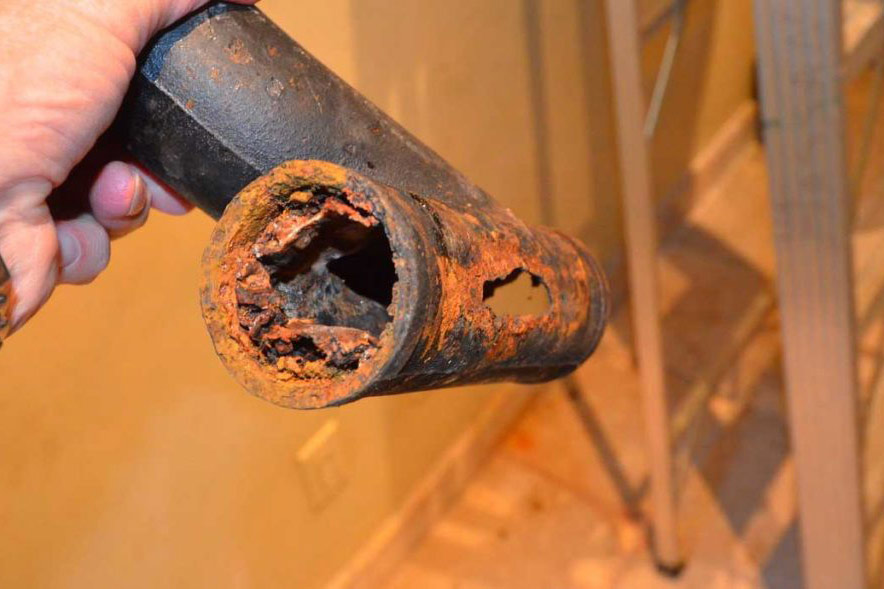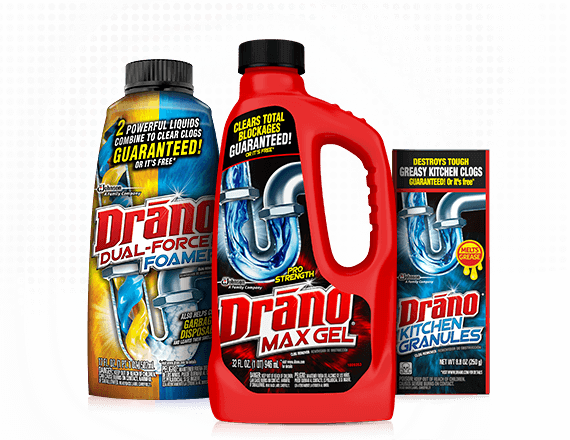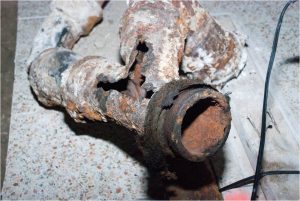Why Are Chemical Drain Cleaners Harmful to Your Plumbing?

If you anything like us, you may have stumbled a time or two in your high school science class when it came to the periodic table. However today we are going to look into why it is important to keep chemicals on the chart and not in your drain line!
Did you know that what pours down your drain is one of the chemical equations you need to know the most about? Grease, soap, hair, and food all contribute to that nasty clog you may have in your lines, but before you reach for that chemical, you should take a closer look at what’s in those harsh household products.
What’s in Chemical Drain Cleaners
Most chemical drain cleaners use sodium hydroxide (also known as caustic soda or lye) or sulfuric acid. These chemicals are extremely corrosive to organic materials and metals. The chemicals are bases so they give electrons to the clogging substance and their hydroxide ions create the reaction that clears the clog. Their alkaline chemicals release heat and turn grease into a soap-like substance that is more easily dissolved. Because the drain cleaners are heavier than water, they sink through any standing water attaching to the clog.
Other cleaners use household bleach, peroxides, and nitrates. These chemicals cause the organic material creating the clog to lose electrons and become oxidized.

What Happens When You Use Chemical Drain Cleaners
When most of these chemicals produce heat, they can soften the properties of PVC pipes and can eat away at older, metal pipes.
In addition to harming your pipes, chemicals included in drain cleaners can be harmful to your health. They are dangerous to your skin if you don’t wear gloves or take precautions not to inhale them.
Chemical drain cleaners can also hide bigger problems with your plumbing system. Clogged drains may only be a symptom of a much larger problem like Improper disposal of grease or fibrous materials in your garbage disposal or something of a larger nature like a backed-up sewer line, broken pipe or blockage lodged deep in your drain.

Chemical-Free Ways to Unclog Your Drain
So, you didn’t memorize the periodic table, which is just fine because to clear a simple clogged drain, you only need to remember baking soda and vinegar.
First, pour a pot of boiling water down the clogged drain and follow it with cold water. The combination just might clear the simplest clog. If not try treating the clog with half a cup of baking soda followed by half of a cup of vinegar. Let the mixture sit overnight and then flush the drain with hot water.
